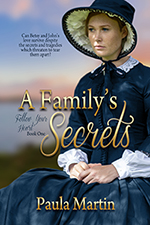Adjectives
When I was at school (a long time ago!), my English teachers insisted we used lots of adjectives to make our writing more descriptive. In contrast, writers today are warned against the overuse of adjectives.
Various reasons are given for this: too many adjectives give your novel a ‘purple prose’ tint, or clutter the text with unnecessary modifiers, or give the impression that the writer cannot quite find the right word.
Mark Twain said: "As to the adjective, when in doubt, strike it out."
The question is – which adjectives should you strike out?
First there are the redundant adjectives – the tiny kitten (aren’t all kittens tiny?), the large giant (ever seen a small giant?), the narrow alley (an alley IS a narrow passage), the cold snow (if snow wasn’t cold, it would be water!). Omit the adjective if the noun is self-explanatory.
Secondly, there are the adjectives which can be replaced with a much more descriptive word e.g. ‘a downpour flooded the streets’ instead of ‘heavy rain flooded the streets’, or ‘the witch cackled’ instead of ‘the witch gave an evil, sharp laugh’.
There are also some adjectives which have become almost meaningless and should be avoided (except occasionally in dialogue), including wonderful, lovely, gorgeous, stupid, foolish, horrid – and the obvious one, nice.
However, a story without any adjectives could end up as very clinical and dry. As with most things, moderation is the key. We are not advised to avoid adjectives altogether, but to avoid overusing them. Eliminating all adjectives would be as big a mistake as overusing them. Adjectives can clarify meaning and add colour to our writing, and can be used to convey the precise shade of meaning we want to achieve. We should save them for the moments when we really need them and then use them selectively – and sparsely.
Adjectives should only be used to highlight something the noun can’t highlight. We’ve already seen that the ‘narrow alley’ has a redundant adjective, but what about the ‘dark alley’ or the ‘filthy alley’? Not all alleys are dark or filthy so in these examples, the adjectives are adding something that is not already shown by the noun. This is the main reason for using an adjective.
And now I'm off to take my own advice and look through my ms. for redundant adjectives!
Find me on Facebook: www.facebook.com/paulamartinromances
Link to my Amazon author page: author.to/PMamazon











Thr trick is to find the right adjective. A difficult situation at times.
ReplyDeleteVery true, Janet. At the same time, that is one of the joys of the English language with its richness of synonyms.
Delete